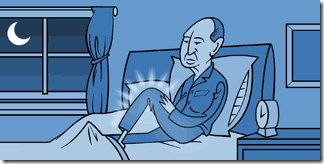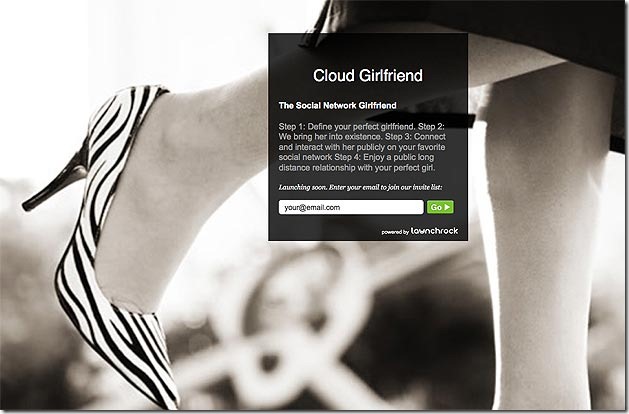 AP – From left, cast members Carla Gugino, Jena Malone, Abbie Cornish, producer Deborah Snyder, director Zach …
AP – From left, cast members Carla Gugino, Jena Malone, Abbie Cornish, producer Deborah Snyder, director Zach …
By Chris Lee
NEW YORK – Critics, fanboys, and the moviegoing public rarely reach consensus, but on the action movie Sucker Punch, they all seem to agree that it's horrific. Chris Lee examines the vitriol.
In an increasingly fractured, 700-channel digi-verse, where attentions are divided between myriad media pursuits, strong opinions travel with lightning speed 140 characters at a time, and anything approaching critical consensus is nearly impossible to come by, a movie has arrived to provide a kind of cultural unity seldom seen outside of responses to natural disasters or terrorism.
The critical assessment nearly everyone with access to a computer keyboard seems to share? That director Zack Snyder's impressionistic action epic Sucker Punch is absolutely dreadful.
"The film abdicates so many basic responsibilities of coherent storytelling, even coherent stupid-action-movie storytelling, director/co-writer/co-producer Zack Snyder must have known in preproduction that his greasy collection of near-rape fantasies and violent revenge scenarios disguised as a female-empowerment fairy tale wasn't going to satisfy anyone but himself," harrumphed Michael Phillips in his Chicago Tribune review.
Worse still, to judge by Sucker Punch's unspectacular box-office performance, opening to a soft $19 million and placing second to the much less-hyped Diary of a Wimpy Kid sequel ($24.4 million), Snyder's core constituency—the kind of guys who lust after Princess Leia and can recite swaths of dialogue from Star Trek II: The Wrath of Khan—seems to have forsaken him. It's an outcome that would have been just this side of impossible to imagine last July when the director unveiled footage from Sucker Punch to a veritable hero's welcome at that pantheon of geekdom, San Diego's Comic-Con. And as recently as a few months ago, buzz about the movie remained at fever pitch: "Behold the Fetishistic Awesomeness of Zack Snyder's SUCKER PUNCH!!" blared a typical headline on Ain't It Cool News.
Then Warner Bros. started screening the film, and next thing you know, the geeks are calling it the worst affront since Jar Jar Binks—with more than a few fanboy functionaries, including Ain't It Cool's Harry Knowles, admitting deeply conflicted feelings about not loving Snyder's latest.
As sophisticated culture consumers (who just happen to disproportionately still live in their parents’ basements), fanboys don’t appreciate any perception of being shamelessly pandered to.
• A ‘Sucker Punch’-Inspired Cocktail Recipe "As someone who considered himself a Zack Snyder enthusiast (yes, even the owl movie) it gives me no pleasure to inform you that Sucker Punch, the first film based on an original concept of Snyder's, doesn't work," reads a review on ugo.com. "How could this happen? How could a movie with giant samurai, interplanetary robots, undead WWI soldiers, dragons, and five half-naked beauties all beating each other up be bad? HOW COULD THIS HAPPEN?!?"
It gets worse. On a post unsubtly entitled "Sucker Punch goes beyond awful to become a commentary on the death of moviemaking," the sci-fi website io9.com even decried what many armchair critics view as the film's chief selling point: its five vixenish female protagonists as fodder for masturbatory fantasies. "Though this movie has women in tiny outfits, you're going to see less skin here than you would in an average episode of Baywatch," the io9 review asserts. "And unlike Baywatch, there's nothing fun to jack off to here, unless you're into the sounds of an offscreen rape."
So now the question: What in the world did Sucker Punch ever do to merit such withering scorn?
To be sure, Snyder's geek bona fides are beyond reproach—and that may be a large part of the problem. The audacious auteur responsible for 2004's Dawn of the Dead reboot galvanized the fanboy film fan diaspora, heralding the arrival of a devastating new talent. But it was Snyder's swords-and-sandals smash 300 that made him patron moviemaking saint of a certain strata of society—namely grown men who collect action figures. And for some (although not all geeks), the director's divisive, pastiche-filled film adaptation of the graphic novel Watchmen seemed to cement his reputation as a filmmaker with his finger firmly on the comic book nerd pulse. The New York Times Magazine recently anointed Snyder "the purest geek-auteur of the geek-film era."
Which all adds up to set the bar pretty high for Sucker Punch, his first go at directing original— i.e. not adapted or rebooted—material; Snyder co-wrote the script with Steve Shibuya. But as well, there were several other fundamental hurdles the film faced in connecting with its target demographic:
• Female protagonists: With the possible exceptions of Sigourney Weaver in the Alien franchise and Uma Thurman in Kill Bill, the fanboy world has been reluctant to embrace the wisdom that girls kick ass. Even with speechifying dialogue like "You already have all the weapons" and "Begin your journey, it will set you free" intended to inspire in every other scene, the geeks apparently opted not to project their hopes and aspirations onto machine gun-wielding, lingerie-clad Sailor Moon lookalikes.
• While Snyder has provided what amounts to a pu-pu platter of action imagery—steam punk Nazi zombies, fantastical serpents, giant ogre samurais, mech robots, etc—intended to light up the fanboy hippocampus like a Christmas tree, one of the main knocks against Sucker Punch is that it all doesn't quite add up. And as evidenced by the success of Christopher Nolan's reconfigured Batman, geeks are looking for substance in addition to style. And as sophisticated culture consumers (who just happen to disproportionately still live in their parents' basements), they don't appreciate any perception of being shamelessly pandered to.
• The mother of all confusing plots: Sent to a gulag-like Vermont mental institution after being framed for killing her sister (and in the wake of her own mother's untimely death), bottle-blond gamine Babydoll (Emily Browning) is scheduled to receive a lobotomy in five days time. In order to confront her impending loss of sentience, she somehow transfers her consciousness into another realm: a garish bordello where she and the other Girls Interrupted must dance for their survival. Every time Babydoll dances, though, she beams into still-deeper subconscious realms to battle the aforementioned Nazis, robots, serpents, et al. en route to collecting several totems—fire, a key, a knife, a map—that will set her (and her four insane asylum/bordello cohorts portrayed by Jena Malone, Abbie Cornish, Jamie Chung, and Vanessa Hudgens) free. Got all that? No, Harry Knowles didn't either.
While hell apparently hath no fury like a fanboy wronged, Sucker Punch is, in fact, not awful and in certain ways pretty great, I thought. If you sit back and let it happen to you as an unwieldy visceral jumble rather than actively await an epic awesomeness—something that few cultural offerings can manage—the film unfolds with a kind of delicious delirium, as a visually sumptuous fever dream. Even though unmistakably imperfect, Sucker Punch is one of the more cutting-edge mainstream movies to reach the multiplex in a long time—an exercise in non-linear storytelling that exists decidedly outside the kind of predigested world that most films that thrill the geek heart.
So a message to all the fanboys who have been doing the hate stomp on Snyder lately: Stop using the metaphor about feeling "sucker punched" to describe your disappointment with the film and quit dissing your homeboy—you're going to give him performance anxiety about his follow-up directing gig. This is, after all, the guy who's going to reboot Superman next.
Chris Lee is a senior entertainment writer for Newsweek/The Daily Beast.





 NEW YORK – A new study appears to show that beautiful people are happier than their ugly counterparts—but research has also proven good looks to be a curse, especially on the job. Jessica Bennett reports.
NEW YORK – A new study appears to show that beautiful people are happier than their ugly counterparts—but research has also proven good looks to be a curse, especially on the job. Jessica Bennett reports.

 When it comes to
When it comes to 







